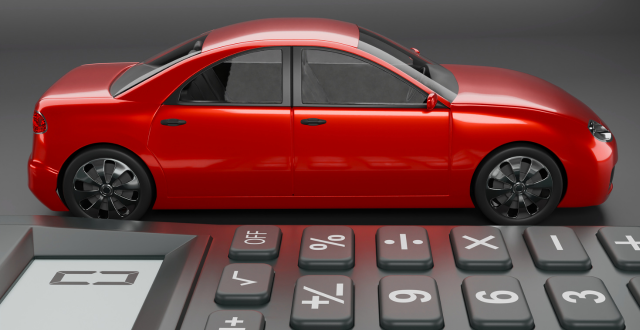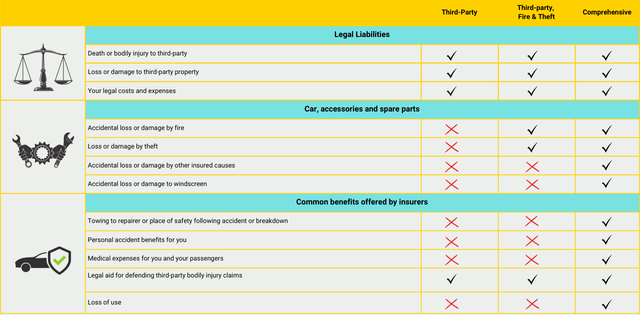01/11/2024

Are you considering buying a car in Singapore? Choosing the right car is a crucial decision, especially in Singapore, where owning a vehicle is a high investment due to the expenses and strict regulations. Whether it’s your first car or an upgrade for your family, the vehicle must match your lifestyle, budget, and needs to ensure comfort, convenience, and savings.
Navigating the car-buying process in Singapore can be both exciting and challenging. This guide will walk you through the essential steps, tips, and factors to consider when selecting the best car for you.
Understanding Your Needs and Lifestyle
Choosing a car that fits your lifestyle is essential for maximising comfort, convenience, and value. Your vehicle should complement your daily activities, stay within your budget, and meet your specific needs.
Here are the key factors to consider when buying a car:
- Budget:
- Ensure your budget covers the purchase price, whether for a new or used car.
- Evaluate loan options from various banks.
- Account for monthly running costs, including fuel, insurance, and maintenance.
- Plan for the down payment and loan tenure.
- Passengers & Cargo:
- Consider your family size.
- Factor in hobbies that require gear (e.g., bikes, sports equipment).
- Assess your needs for cargo space and cabin room.
- Driving Habits (Local Context):
- City driving: Prioritise fuel efficiency and ease of parking in tight spaces.
- Highway commutes: Opt for saloons or fuel-efficient SUVs for longer journeys.
- Off-road adventures: Consider SUVs with four-wheel drive for trips outside the city.
- Environmental Concerns:
- Evaluate the fuel efficiency of the vehicle.
- Consider the advantages of electric or hybrid models.
When buying a car in Singapore, it is important to consider various aspects such as car ownership costs, car models, car insurance, and your specific needs as a car owner. Whether you are looking for a new or a second-hand car, understanding prices, including the Open Market Value (OMV) and the Additional Registration Fee (ARF), is crucial. Factors like petrol prices, car price calculations, vehicle inspections, and test drives are also significant considerations, especially for first-time owners.
Owning a car in Singapore involves a huge financial commitment, including paying for road tax, insurance premiums, maintenance costs, and obtaining competitive prices from authorised dealers or parallel importers. Additionally, you should consider reliability ratings, engine capacity, and overall driving experience. Practical aspects such as parking rates, Certificate of Entitlement (COE) price, interest rate, and COE renewal should also be taken into account.
Budgeting for Your Car
Your budget will significantly influence the type of car you can purchase, whether a new or used vehicle or a luxury versus a more practical option.
Impact of Budget on Car Type
- New vs. Used Car: A brand-new car offers the latest features and warranties but comes at a higher price due to the Certificate of Entitlement (COE) and higher depreciation. While more affordable upfront, a used car might require more maintenance and have higher insurance premiums.
- Luxury vs. Practical Car: A luxury vehicle offers advanced features, superior comfort, and status but comes with a steep price tag, higher insurance, and maintenance costs. Practical cars tend to be more budget-friendly, fuel-efficient, and have lower running costs.
Understanding the Impact of COE on Affordability
The Certificate of Entitlement (COE) is a significant factor in Singapore's car affordability. A bidding system grants the right to own and operate a vehicle, often at a high price. The COE price fluctuates based on supply and demand, which can greatly influence the overall cost of buying a car. It is essential to factor in the COE when budgeting for a new or used vehicle.
Exploring Car Types
Singapore offers various car types, each with unique features that cater to different preferences:
- Hatchbacks: Compact and fuel-efficient, hatchbacks are designed for easy manoeuvrability and parking, especially in tight urban spaces. They typically feature a rear door that swings upward, providing convenient access to the cargo area, which is integrated into the passenger cabin.
- Sedans: Sedans are characterised by their comfortable and spacious interiors. They generally offer a good balance of storage capacity, performance, and fuel efficiency.
- SUVs: Sport Utility Vehicles (SUVs) stand out for their versatile design, offering ample cargo space and a higher driving position. They are built to handle various terrains, often equipped with features like four-wheel drive and robust suspension systems.
- MPVs: Multi-Purpose Vehicles (MPVs) are known for their large cabin space and flexible seating arrangements, which can accommodate more passengers or additional cargo as needed. They are typically larger and have a boxy design to maximise interior volume.
- EVs: Electric Vehicles (EVs) are powered entirely by electricity, offering an eco-friendly alternative with lower running costs. EVs are often equipped with advanced technology and provide a quiet, smooth driving experience.
- Hybrids: Hybrids combine a petrol engine with an electric motor, enhancing fuel efficiency without compromising performance. They switch between or combine the two power sources to optimise energy use, making them an efficient choice for various driving conditions.
Matching Your Lifestyle with the Perfect Car
Different lifestyles require different car types, and choosing the right vehicle can greatly enhance your daily experience:
1. Budget-Conscious Drivers
For those prioritising affordability, compact hatchbacks and sedans offer a cost-effective solution. These vehicles are not only easier on the wallet but also help save on long-term operational costs due to their fuel efficiency and lower maintenance needs.

2. Family on the Move
Families often benefit from the spacious interiors and flexible seating options provided by Multi-Purpose Vehicles (MPVs). These vehicles accommodate more passengers and cargo, making them ideal for family outings and daily school runs.

3. Urban Adventurers
For those who enjoy city exploration, hatchbacks and compact SUVs are perfect. Hatchbacks are easy to navigate through city streets, while compact SUVs provide a higher driving position and more storage space, accommodating both urban commutes and weekend getaways.

4. Eco-Conscious Drivers
Individuals focused on reducing their carbon footprint will find Electric Vehicles (EVs) and Hybrids to be the ideal choice. EVs offer zero emissions, while hybrids provide a balanced approach, reducing fuel consumption and emissions.

Visiting Showrooms
Visiting showrooms is an important step in purchasing the right car, offering you a firsthand experience of the models available. Seeing and test-driving a vehicle provides insights that online research cannot. Showrooms also offer the chance to ask questions and gather detailed information from knowledgeable sales representatives.
Here are some tips to make the most of your visits:
- Researching the Car Model You Want: Before visiting a showroom, conduct research on the cars you are interested in. Familiarise yourself with the features, specifications, and price ranges to narrow down your options.
- Knowing Your Budget: Have a clear idea of your budget, including the maximum amount you can afford for the car, insurance, and other costs like the Certificate of Entitlement (COE) and maintenance. This ensures you make realistic choices and avoid overspending.
- Setting Expectations Ahead of Time: Decide on your must-have features and be prepared to compromise on less critical aspects. This helps in making efficient decisions and prevents being swayed by unnecessary add-ons.
- Asking Questions: Prepare a list of questions to ask the sales representatives. Inquire about the car's fuel efficiency, maintenance costs, reliability ratings, warranty coverage, and any promotions or discounts available.
Quick tip: Bring a notepad or use your phone to jot down important details about each car you test drive. This will help you compare models later on.
Taking the Next Step: Test Drives
Test drives give an opportunity to evaluate a car's performance, comfort, and suitability for your needs. Here is why test drives are essential:
- Evaluating Performance: A test drive allows you to experience the car's acceleration, braking, handling, and overall dynamics. This helps you assess how the car performs under different driving conditions and ensures it meets your expectations.
- Assessing Comfort: Comfort is a key factor in car ownership. During a test drive, you can check the comfort of the seats, the ease of entering and exiting the vehicle, the layout of the controls, and the overall cabin space. This is especially important for long drives and daily commutes.
- Identifying Potential Issues: It can reveal any potential issues or quirks with the car that might not be clear through online research or showroom inspections. Listen for unusual noises, check the responsiveness of the controls, and pay attention to the car's overall feel.
- Comparing Models: Test-driving multiple models allows you to make direct comparisons. You can better understand the differences in ride quality, features, and comfort levels, helping you choose the car that best fits your needs and preferences.
- Gaining Confidence: A test drive provides peace of mind. It confirms that the car you are interested in meets your expectations and makes you feel confident in your purchase decision.
Here are some tips for test drives:
- Plan Your Route: Choose a test drive route that includes a mix of city streets, highways, and any specific driving conditions you frequently encounter. This helps you assess the car's performance in various situations.
- Test Key Features: Pay attention to key features such as the car's infotainment system, climate control, visibility, and parking aids. Ensure they are intuitive and meet your requirements.
- Bring Family Members: If the car is for family use, bring along family members to get their feedback on comfort and space. This is particularly important for back seat comfort and ease of access.
Quick Tip: Do not rush the test drive. Take your time to explore all aspects of the car, ask questions, and ensure you feel comfortable and satisfied with your choice.
Financing Options
When buying a car in Singapore, understanding your financing options is vital. Car loans are the most common method, allowing you to spread the cost of the vehicle over a set period. Typically, a down payment is required upfront, which reduces the loan principal and the total interest paid. It is essential to select a loan tenure that balances manageable monthly repayments with your financial comfort.
Comparing interest rates from different lenders, including banks and financial institutions, is essential. Interest rates can vary significantly, impacting the total cost of the loan. By going around and comparing rates, you can secure the most competitive loan terms, ultimately saving money in the long run. This ensures you make a more informed decision and manage your finances effectively when purchasing your car.
Understanding Car Insurance
When buying a car in Singapore, it is also important to understand the different types of car insurance available to protect your investment and comply with legal requirements.
There are generally three main types of car insurance you can consider:
- Comprehensive Insurance: This provides the most extensive coverage, protecting against a wide range of risks. It covers damages to your vehicle from accidents, theft, and fire, as well as third-party liabilities. Comprehensive insurance may also include personal accident coverage and medical expenses for the driver and passengers.
- Third-Party, Fire, and Theft Insurance: This insurance covers damages to third-party vehicles and property and also provides coverage if your car is stolen or damaged by fire. However, it does not cover any damage to your vehicle resulting from accidents.
- Third-Party Insurance: This is the minimum legal requirement in Singapore. It covers liabilities for injuries or damages caused to third-party vehicles and property. However, it does not provide coverage for damage to your own vehicle or theft.
This table below outlines the common key benefits and features of each type of insurance:

Insurance costs can be overwhelming, but it allows you to feel secure about your purchase in case of an emergency. To that end, it is essential to know that several factors influence the cost of car insurance premiums:
- Car Type: The make, model, and age of the car significantly impact insurance premiums. Luxury and high-performance vehicles usually attract higher premiums due to their higher repair and replacement costs.
- Driver Age: Younger drivers, especially those under 25, often face higher insurance premiums as they are considered higher risk due to their relative lack of driving experience.
- Driving History: A clean driving record with no accidents or traffic violations can help lower your insurance premiums. Conversely, a history of accidents or violations will likely increase the cost.
- Usage and Mileage: The frequency and distance of your driving can affect premiums. Vehicles that are driven frequently or over long distances are considered at higher risk for accidents, leading to higher insurance costs.
Making Your Purchase Decision
After completing your research, test-driving potential cars, and evaluating all costs, it’s time to make an informed decision. Here is how to ensure you finalise your purchase wisely:
1. Negotiating the Price: Be prepared to negotiate with the dealer to secure the best possible deal. Do not hesitate to ask for discounts, promotions, or additional perks such as free servicing packages or extended warranties.
2. Finalising the Paperwork: Carefully review all documents before signing any contracts. Ensure that all terms and conditions, including the purchase price, Certificate of Entitlement (COE), insurance coverage, and financing arrangements, are clearly outlined and agreed upon.
3. Securing Financing: Obtain financing approval prior to finalising your purchase. Ensure you are comfortable with the loan terms, monthly payments, and total interest payable. Compare rates from different lenders to secure the most competitive terms.
4. Arranging Insurance: Obtain comprehensive car insurance that covers third-party liabilities, damage to your car, and other potential risks. Shop for coverage that meets your needs and budget.
5. Considering Total Cost: Ensure that the total cost of ownership fits within your budget—factor in all ongoing expenses, such as road tax, insurance, and maintenance.
6. Evaluating Long-Term Needs: Think about your long-term needs. Consider whether the car you choose today will still meet your requirements in five years, especially if you plan to expand your family or change jobs.
7. Preparing for Delivery: Arrange for the delivery of your new car at a convenient time. Inspect the vehicle thoroughly upon delivery to ensure it matches the agreed-upon specifications and is in perfect condition.
8. Closing the Deal: Review the sale agreement carefully to confirm all terms are as agreed upon and that there are no hidden costs. After signing, schedule the vehicle’s registration, insurance, and any additional services or installations.
Conclusion
Buying a car in Singapore is a significant investment that requires careful consideration of your budget, needs, and long-term goals. By understanding the various factors that impact car ownership, from financing options and ownership costs beyond purchase to visiting showrooms and evaluating the total cost of ownership, you can make an informed decision that best suits your lifestyle.
Ready to start your car search? Use these tips to find the perfect fit for your lifestyle and enjoy a smooth ride in the bustling city of Singapore.
Disclaimer: The information provided in this article is for general information only and is not intended to provide a complete descriptions of all terms, exclusions, and conditions applicable to every insurance product or service offered by Liberty Insurance. Liberty Insurance makes no representations or warranties of any kind whatsoever that the information and materials contained on our website are suitable for your needs, are complete, timely, reliable, or are free from errors, inaccuracies or typographical mistakes. Please refer to our website terms and conditions (Terms and Conditions | Liberty Insurance Singapore) for the terms of use and refer to the policy wordings of the products for more details on the relevant terms and conditions

